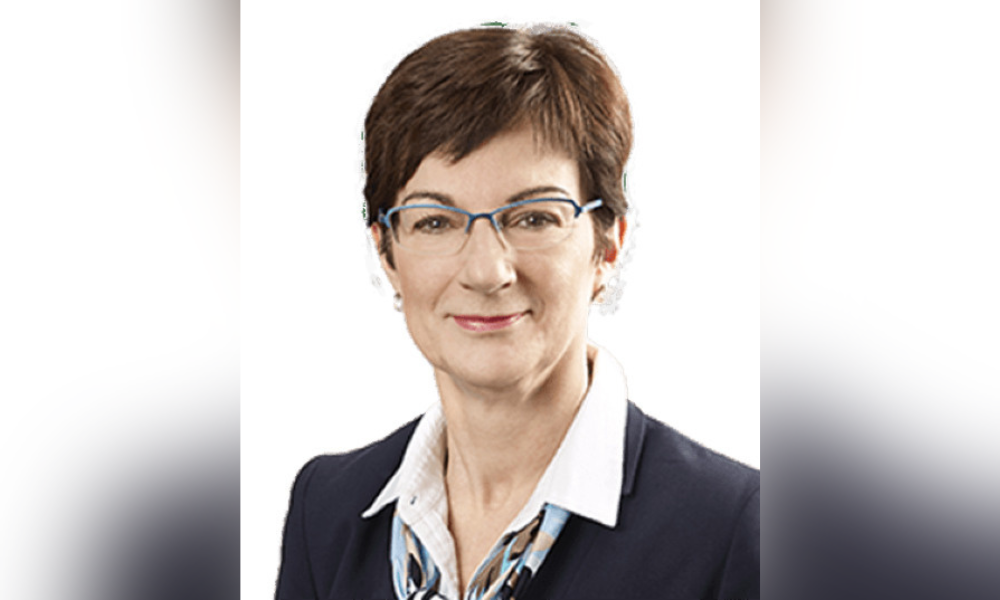
Norton Rose senior partner says leaders must recognize that they sometimes have bias

As remote and hybrid work environments continue to take centre stage in the legal profession, Linda Fuerst, a senior partner at Norton Rose Fulbright, says leaders need to be thoughtful about proximity bias and work against it by ensuring they are equitably spreading the work around.
Traditionally, she says many lawyers delegate work to junior associates they are familiar with. However, with more lawyers working from home several days a week, leaders must recognize that they sometimes have bias.
“In our firm, one of the ways that we deal with that is by regularly providing the partners with reports about who they are giving work to, including having that broken down by gender.”
Fuerst says the framework has been beneficial in ensuring that work spreads fairly and helping the firm identify if they are overusing particular associates.
“Similarly, for the associates, if they perceive they aren’t getting opportunities they should be receiving, we are encouraging them to speak to their mentors and talk to their sponsors and management.”
When she began her career over 30 years ago, Fuerst says cell phones were rare and people communicated by sending letters and faxes, which did not always get immediate responses.
“In many ways, the pace of the profession was a lot slower, vacations in the summertime tended to be longer and it was unusual for partners to call associates in the evenings.”
Fuerst says much of that has changed primarily because of technology, so professionals have to change their work approach. Unfortunately, she says it can be challenging, particularly for people who have families and are moving up in law practice.
The legal profession is a service industry, and with things happening on short notice, lawyers must make themselves available to clients and be able to put their best foot forward, Fuerst says.
“Unfortunately, for younger associates, that means less ability in many ways to manage their work versus personal life and to be able to draw a real line between the two.”
Fuerst says that professional leaders can champion women’s work-life balance needs by being thoughtful and understanding that lawyers have other home responsibilities.
Fuerst began her legal career clerking for the Chief Justice of the High Court of Ontario. She practised criminal law and served as a part-time assistant crown attorney before joining the Ontario Securities Commission enforcement branch as senior investigation counsel. Following a rotation at the US Securities and Exchange Commission in Washington, DC, she joined litigation firm Lenczner Slaght Royce Smith Griffin LLP, where she practised from 1994 to 2015 before being approached by Norton Rose.
Fuerst’s litigation practice covers a broad range of commercial and professional liability matters, mainly focusing on securities litigation, class proceedings and regulatory issues. She has litigated civil, criminal and regulatory cases and has appeared before all levels of court in Ontario, the Supreme Court of British Columbia, the Supreme Court of Nova Scotia and the Nova Scotia Court of Appeal.
Fuerst has represented clients in connection with investigations and proceedings by the Ontario, Alberta and Nova Scotia securities commissions, the Investment Industry Regulatory Organization of Canada (IIROC), Mutual Funds Dealers Association (MFDA) and the Competition Bureau. She has also directed internal investigations into matters, including possible insider trading and backdating of stock options.
Fuerst will speak at the Canadian Lawyer’s Women in Law Leadership Breakfast on Sep. 13, 2022, on “Growing your Career in a Hybrid Environment.”
Balancing work and home responsibilities also affects older women, particularly those with aging parents and, in some cases, spouses with ongoing health needs or problems, and Fuerst says senior lawyers can show leadership in how they approach these matters.
Fuerst says mentoring and sponsoring young lawyers can be more challenging when people are not physically in the office and seeing each other often. “As a result, the firm encourages frequent contact by phone, zoom, and other means if in-person physical contact is not possible.”
When everyone worked from the office five days a week, she says sponsorship could develop organically and naturally. For example, if an associate and partner worked together frequently and the associate was interested in becoming an expert in the practice area, sponsorship relationships often developed out of those contacts.
Between mentors and associates, she says the firm ensures regularly scheduled interactions are taking place, and when several people are in the office, there are opportunities to have a cup of coffee together to chat about how things are going, even if it is not about a case.
“We try to encourage going for lunch together, ordering pizza, whatever it takes to encourage those informal interactions that are so important for young lawyers in learning some of the soft skills of the profession, which can be more of a challenge when you’re always dealing remotely.”